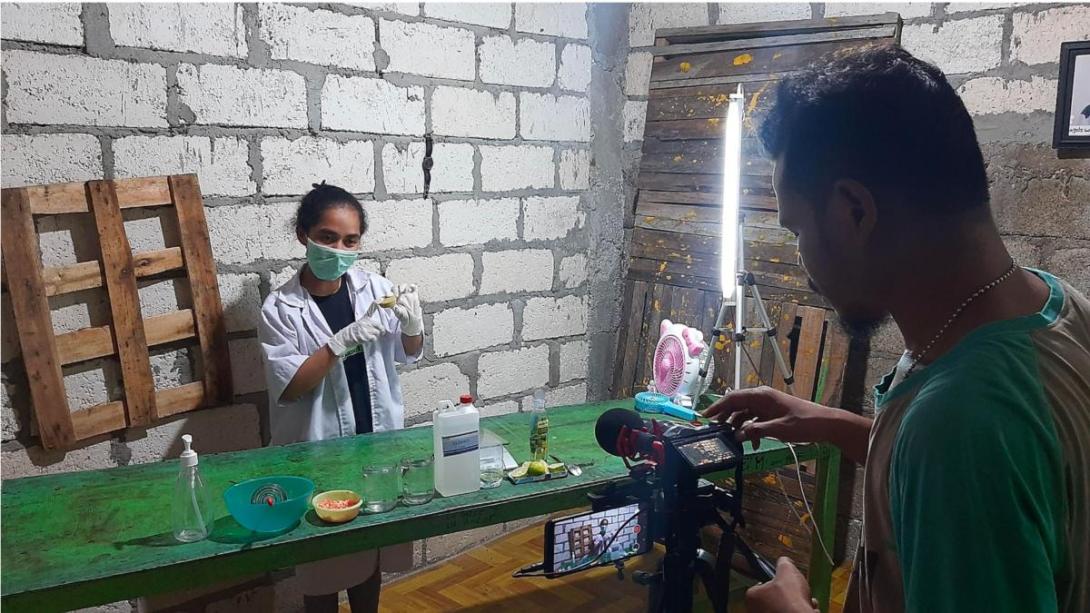
“To keep young people engaged in environmental issues, we don’t need a specific curriculum but rather, we need to create a safe space for them to learn and share.”
The goal of the project is to build the power of young people in Kupang for environmental campaigns.
Main Objectives:
- Raise awareness of a key group of young people (trainee chemistry teacher) of environmental issues in NTT
- Develop young teachers’ skill in designing learning process which incorporates environmental issues
- Develop WALHI NTT’s relationship with key stakeholders (such as universities, schools, government, academics and community-based environmentalists) who have potential to impact on youth awareness and action on environmental issues
- Strengthen WALHI’s credibility and skills as an environmental advocacy organisation
- Provide a learning experience for the project manager (myself) and WALHI as an organisation.
The “Green Chemistry Teacher Agent for the Environment” project, led by Rima Melanie Bilaut with WALHI NTT, aimed to build environmental awareness among future chemistry teachers in Kupang, East Nusa Tenggara, by integrating ecological themes into chemistry education. Originally designed as a three-phase program—pre-workshop, workshop, and post-workshop, but the project faced significant disruption due to the COVID-19 pandemic. It successfully pivoted to an online format, delivering mentoring sessions, developing teaching modules, and conducting virtual workshops with chemistry education students from the University of Nusa Cendana.

A key achievement was the creation and implementation of green chemistry modules, which addressed environmental issues using chemistry concepts. These modules were tested through student activities like making soap from used cooking oil and ecobricks from plastic waste. As a result, the trainees formed the “Beta Green Chemistry Teacher” (I am a Green Chemistry Teacher) club, which continued the campaign and inspired further action. The club collaborated with schools and WALHI’s youth network to share green chemistry practices, gaining positive responses from both students and teachers. The project also produced documentary and learning videos, shared on YouTube (https://www.youtube.com/@betagu…) and social media, to further spread awareness.
In addition to equipping young teachers with environmental education tools, the project strengthened WALHI’s relationships with academic institutions, built local partnerships, and established WALHI’s credibility in the education sector. The project also empowered the project leader with enhanced leadership, communication, and project management skills. While some outreach to government stakeholders remains ongoing, the creation of the teacher club and its continuing activities demonstrate strong potential for long-term impact and sustainability.

